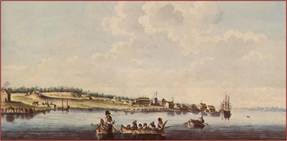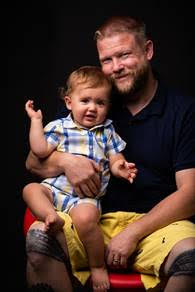Next Meeting: Wednesday, September 25th, 2024, CLICK HERE TO REGISTER
Socialize at 6:30, Business at 7:00, Featured Presentation at 8:00
Zoom Only
***UASC May 2022 MEETING****
Wednesday, May 25th @ 07:00 PM CST – Meeting of Underwater Archaeological Society of Chicago
As of now, we do not have a featured presenter.
Meeting timetable:
Social: 06:30 – 07:00 PM CST, Business Meeting: 07:00 – 08:00 PM, Presentations: 08:00 – 09:00 PM CST (or later, if necessary)
Meeting Registration link (NOTE: MUST REGISTER IN ADVANCE):
https://us02web.zoom.us/meeting/register/tZAkf-ugqjkrE9xQ7QGF39_zbDxCWdvS-lHT
Pre-meeting Informal Social; 06:30 – 07:00
Business Meeting; 07:00 – 08:00
Featured Presentation: 08:00 – 09:00 (or later if necessary)
***UP COMING CLASS****
- Survey and Recorder Skills Days Practical (TOMORROW AND SUNDAY)
(May 21 & 22, 2022, Saturday & Sunday, 9:00 AM Ct – 4:00 PM) (In-person)
Member Cost: $55.00 Non-member Cost: $110.00
Thanks,
Scott Reimer
UASC President
Email:
***UASC April 2022 MEETING****
Wednesday, April 27 @ 07:00 PM CST – Meeting of Underwater Archaeological Society of Chicago
Featured Presenter: Dr. Ashley Lemke is an Assistant Professor of Anthropology at the University of Texas
Presenting: Under the Great Lakes and Back in Time: 9,000-year-old archaeology below Lake Huron
Meeting timetable:
Social: 06:30 – 07:00 PM CST, Business Meeting: 07:00 – 08:00 PM, Presentations: 08:00 – 09:00 PM CST (or later, if necessary)
Meeting Registration link (NOTE: MUST REGISTER IN ADVANCE):
https://us02web.zoom.us/meeting/register/tZ0pcOutrDsiHtw1QzuYUhnD9g2fL1TfCSBF
Pre-meeting Informal Social; 06:30 – 07:00
Business Meeting; 07:00 – 08:00
Featured Presentation: 08:00 – 09:00 (or later if necessary)
Under the Great Lakes and Back in Time: 9,000-year-old archaeology below Lake Huron
The Great Lakes have changed significantly since they were first formed, particularly in terms of water level fluctuations. Just after the end of the last ice age, water levels in the Great Lakes were significantly lower than they are today, resulting in vast stretches of land beyond the modern shorelines that would have been dry and habitable for people and animals. While most archaeological research in Lake Huron has focused on historical shipwrecks, for the past ten years a team has been working on the Alpena-Amberley Ridge (AAR), a dry land corridor of 9,000 years ago where ancient peoples lived and hunted. This talk presents research documenting a unique environment, hunting strategies, and archaeological methods at 100 feet below Lake Huron.
Biography:
Dr. Ashley Lemke is an Assistant Professor of Anthropology at the University of Texas at Arlington and Chair of the Advisory Council on Underwater Archaeology. She received her B.A. in Anthropology and Classical Civilizations from the University of Texas, and her M.A. and Ph.D. in Anthropology from the University of Michigan. She has extensively in North American fresh and salt waters studying prehistoric, indigenous archaeological sites.
***UP COMING CLASS****
- Survey and Recorder Skills Days Practical
(May 21 & 22, 2022, Saturday & Sunday, 9:00 AM Ct – 4:00 PM) (In-person)
Member Cost: $55.00 Non-member Cost: $110.00
***UASC March 2022 MEETING****
Wednesday, March 30th @ 07:00 PM CST – Meeting of Underwater Archaeological Society of Chicago
Featured Presenter at 8:00 PM: Sarah V. Zimmerman, Librarian & Archivist - Special Collections and Preservation Division
Presenting: A Virtual Tour of How to find and Use Chicago Public Library’s Archives and Primary Sources
Meeting timetable:
Social: 06:30 – 07:00 PM CST, Business Meeting: 07:00 – 08:00 PM, Presentations: 08:00 – 09:00 PM CST (or later, if necessary)
Meeting Zoom Registration link (NOTE: MUST REGISTER IN ADVANCE):
https://us02web.zoom.us/meeting/register/tZYrcOipqjMrGNJAKZkIh-G6k2oxhblENpF1
A Virtual Tour of How to find and Use Chicago Public Library’s Archives and Primary Sources
Join Sarah Zimmerman, Chicago Public Library Librarian, and Special Collections Archivist, for a virtual tour of how to find and use CPL’s archives and primary sources and learn tips for conducting your own historical research. Sarah will share tips for how to get started, where to look, and hints for using a variety of sources available to you in person and online.
Biography:
Sarah Zimmerman has been part of the Special Collections team at Chicago Public Library since 2005. Working as both a librarian and archivist she provides reference and outreach for the unit’s 300+ archival collections with a focus on Chicago theater dating from the 1840s to present-day productions.
***UP COMING CLASSES****
April 9, 2022 (Saturday, 09:00 AM CT – 5:00 PM) (Tentative)
Nautical Archaeology Society (NAS) Course
Intro to Maritime Archaeology (Zoom)
Presented by David Thompson & Kendra Kennedy
Further Information & Cost: Will be available shortly
Location: ZOOM
April 10, 2022 (Sunday, 09:00 AM CT – 2:00 PM) (Tentative)
Nautical Archaeology Society (NAS) Course
Coastal and Foreshore Archaeology (Zoom)
Presented by David Thompson & Kendra Kennedy
Further Information & Cost: Will be available shortly
Location: ZOOM
Thanks,
Scott Reimer
UASC President
Email:
***UASC February 2022 MEETING****
Wednesday, February 23rd @ 07:00 PM CST – Meeting of Underwater Archaeological Society of Chicago
Featured Presenter at 8:00 PM: Ben Ford Ph.D., Chair, Department of Anthropology, Indiana University of Pennsylvania
Presenting: Introduction to Coastal Archaeology - Archaeological Investigations that Span the Waterline Can Contribute Significantly to Our Understanding of the Past
Meeting timetable:
Social: 06:30 – 07:00 PM CST, Business Meeting: 07:00 – 08:00 PM, Presentations: 08:00 – 09:00 PM CST (or later, if necessary)
Meeting Zoom Registration link (NOTE: MUST REGISTER IN ADVANCE):
https://us02web.zoom.us/meeting/register/tZYufu6hpj0tGNYnyfqsdaowsDEmdQ-sgMXO
Introduction to Coastal Archaeology - Archaeological Investigations that Span the Waterline Can Contribute Significantly to Our Understanding of the Past

Ships and their cargoes were produced on land, as were most sailors; but much of maritime archaeology tends to focus on watery disasters rather than the origins and destinations of ships, sailors, and cargoes. While shipwrecks were important to maritime peoples of the past, these mariners were much more concerned with the results of successful voyages. Through a wide range of examples, it becomes clear that people in the past saw the coast as a far more permeable boundary than modern archaeologists. This lecture draws on the author’s research, as well as published sources, to introduce coastal archaeology and argue that archaeological investigations that span the waterline can contribute significantly to our understanding of the past.
Biography:

Ben Ford is the Chair of the Anthropology Department at the Indiana University of Pennsylvania. He specializes in maritime and historical archaeology. Ben’s Ph.D. from Texas A&M University was preceded by several years of cultural resource management experience and degrees from the College of William and Mary and the University of Cincinnati. He recently published The Shore is a Bridge: The Maritime Cultural Landscape of Lake Ontario and Our Blue Planet: An Introduction to Maritime and Underwater Archaeology (with Jessi Halligan and Alexis Catsambis). He has also edited the Oxford Handbook of Maritime Archaeology, The Archaeology of Maritime Landscapes, and New Life for Old Collections (with Rebecca Allen). Ben is a Registered Professional Archaeologist and the 2015 Archaeological Institute of America McCann-Taggart Underwater Archaeology Lecturer. His current research focuses on 18th-centruy connections across the Mid-Atlantic region and includes work at Historic Hanna’s Town, a Revolutionary War era town in Pennsylvania, and Fort Necessity National Battlefield, as well as underwater archaeology work in Lake Erie and Lake Ontario.
The "Dive Reports" category is a place for individual members to submit reports of their ( local ) shipwreck dives, separate from any survey reports they may submit for particular survey projects. Information of particular interest is the date of the dive, dive conditions, visibility, general condition of the wreck site, and if there were any observable differences from previous dives on the same site.